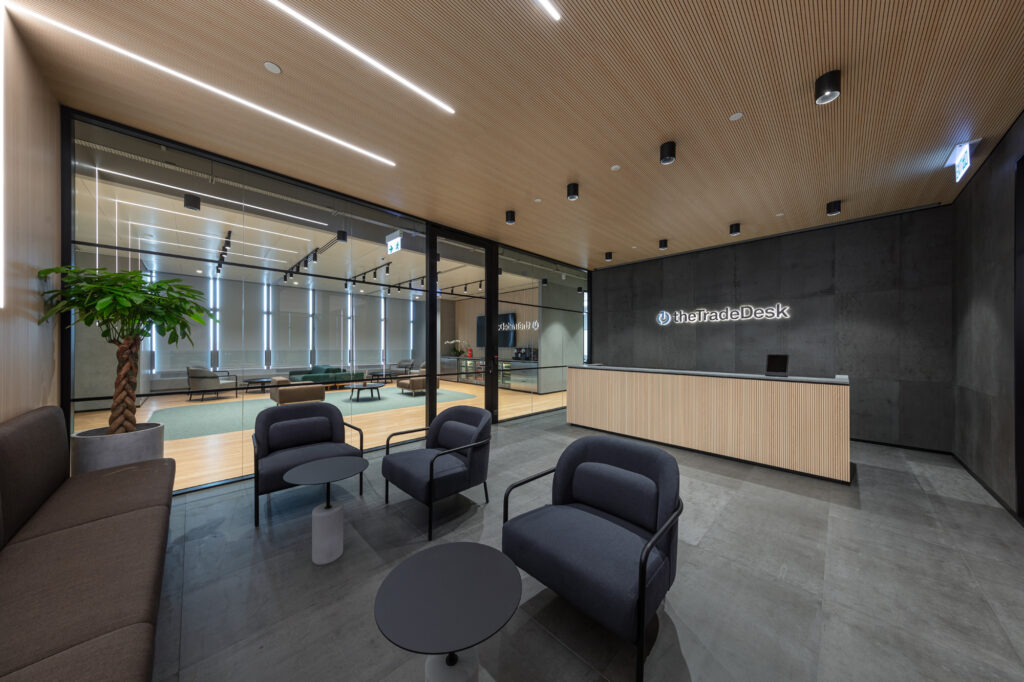Project Planning Services: The Foundation of Successful Commercial Fitouts in Hong Kong.

Key Takeaways
- Hong Kong’s premium real estate costs (HK$62.6 per sq ft) make project planning services essential to avoid expensive delays and mistakes
- Navigate unique urban challenges including limited delivery windows, elevator coordination, and high-rise logistics constraints
- Manage complex regulatory approvals across Buildings Department, Fire Services, and building management with varying timelines (7 days to 6 weeks)
- Coordinate multiple stakeholders including landlords, architects, contractors, vendors, and regulatory authorities with different priorities
- Account for Hong Kong-specific risks including typhoon season, Chinese New Year disruptions, and mainland China supply chain vulnerabilities
- Implement phased development strategies and technology integration to support hybrid workplace models and smart building requirements
Why Project Planning Services Matter in Hong Kong
Commercial fitouts (whether for a new office, retail outlet, or corporate headquarters) are high-stakes investments that require meticulous planning and execution. In a city like Hong Kong, where real estate costs are among the highest in the world, mistakes in planning can lead to expensive delays, regulatory penalties, or design misalignments that impact business operations for years.
The complexity of Hong Kong’s commercial real estate environment makes project planning services not just beneficial, but essential. With Grade-A office space averaging HK$62.6 per square foot across Hong Kong Island, every day of delay or inefficiency translates to significant financial impact. Companies investing millions in premium commercial space cannot afford the risks associated with inadequate planning.
This is why comprehensive project planning services form the foundation of every successful commercial fitout. Proper planning provides the strategic framework for seamless project coordination, transparent construction scheduling, and effective compliance with Hong Kong’s intricate regulatory landscape. The difference between success and failure often lies in the quality of upfront planning and ongoing project management expertise.
The Unique Challenges of Hong Kong Commercial Fitouts
Hong Kong’s distinctive urban environment presents specific hurdles that make careful planning absolutely essential for commercial fitout success:
Dense Urban Environment and Logistical Constraints
Hong Kong’s vertical cityscape creates unprecedented logistical challenges. Limited delivery windows restrict material movement to specific hours, often between 7 AM and 7 PM on weekdays. High-rise logistics require coordination with building management for elevator usage, loading bay scheduling, and noise restrictions that vary by building and time of day.
Site access constraints in Central and other prime districts mean materials must often be pre-staged and delivered in precise sequences. Construction teams working on the 40th floor of an office tower face different challenges than ground-level retail fitouts, requiring specialized planning for equipment transportation, waste removal, and worker access.
Complex Regulatory Landscape
Hong Kong’s regulatory framework involves multiple government departments with overlapping jurisdictions. The Buildings Department oversees structural modifications, while the Fire Services Department governs fire safety compliance. The Labour Department enforces worker safety requirements, and individual building management companies impose additional restrictions that can significantly impact project timelines.
Each authority operates on different approval timelines, ranging from 7 days for minor alterations to 6 weeks for complex mechanical and electrical modifications. Professional project planning services navigate these requirements by submitting applications in the correct sequence and maintaining compliance throughout the construction process.
Compressed Timelines and Business Continuity
Companies relocating within Hong Kong often face compressed timelines driven by lease expiry dates, business migration requirements, or market opportunities. The average commercial fitout timeline in Hong Kong ranges from 8-16 weeks depending on scope, but business pressure often demands acceleration without compromising quality or compliance.
Retail tenants in premium shopping centers face additional pressure from seasonal openings, holiday shopping periods, and coordinated mall marketing campaigns. Project planning services must balance speed with thoroughness to meet these critical business deadlines.
Premium Cost Environment
With commercial property costs at global peaks, budget overruns have amplified impact. A 10% cost overrun on a 10,000 square foot Central fitout can easily exceed HK$1 million when considering rent, construction, and opportunity costs. Effective project planning services implement rigorous cost control measures from day one to protect these substantial investments.
Core Elements of Comprehensive Project Planning Services
-
Strategic Planning Methodologies and Workplace Strategy
Modern project planning services begin with comprehensive needs analysis that goes beyond space requirements to examine workflow patterns, technology integration needs, and future growth projections. This analysis informs space allocation decisions, determines infrastructure requirements, and establishes design parameters that support long-term business objectives.
Workplace strategy development involves detailed consultation with stakeholders across departments to understand how space will be used daily. In Hong Kong’s competitive talent market, workplace design directly impacts employee attraction and retention, making strategic planning crucial for business success.
Budget and scope definition requires detailed market analysis of Hong Kong construction costs, which can vary significantly by district and building type. Professional project planning services leverage local market knowledge to establish realistic budgets that account for Hong Kong’s premium pricing while identifying opportunities for value optimization.
Risk assessment and mitigation planning addresses both universal construction risks and Hong Kong-specific challenges such as typhoon season disruptions, supply chain vulnerabilities from mainland China, and regulatory changes that may impact project delivery.
-
Advanced Project Coordination and Stakeholder Management
Successful commercial fitouts require coordination among numerous stakeholders, each with different priorities, timelines, and communication styles. In Hong Kong, this typically includes landlords with strict building standards, architects familiar with local codes, engineers certified for Hong Kong practice, contractors with city experience, specialized IT vendors, furniture suppliers, and multiple regulatory authorities.
Landlord coordination represents a critical success factor unique to Hong Kong’s commercial market. Premium buildings often have detailed tenant handbooks specifying everything from construction hours and elevator usage to approved contractor lists and insurance requirements. Project planning services manage these relationships proactively to prevent conflicts that can halt construction.
Multi-vendor coordination becomes particularly complex in Hong Kong due to space constraints and scheduling limitations. MEP (mechanical, electrical, plumbing) coordination must happen in precise sequence, with electrical rough-in completed before ceiling installation, and telecommunications infrastructure coordinated with building management systems.
Quality assurance protocols ensure that all work meets both international standards and Hong Kong-specific requirements. This includes material certifications, workmanship standards, and final inspections that satisfy both government authorities and building management requirements.
-
Sophisticated Construction Scheduling and Timeline Management
Hong Kong construction scheduling requires understanding of local labor patterns, material availability, and regulatory approval timelines. Professional project planning services develop detailed schedules that account for Hong Kong’s unique operational environment.
Phased milestone planning breaks complex projects into manageable segments with clear deliverables and approval gates. This approach allows for early identification of delays or issues while maintaining overall project momentum. Typical phases include design development, regulatory submissions, construction documentation, fit-out construction, MEP installation, testing and commissioning, and final handover.
Contingency planning accounts for Hong Kong’s seasonal challenges including typhoon season (May through November), Chinese New Year disruptions (January/February), and summer heat that can impact worker productivity and material performance. Professional schedulers build appropriate buffers while maintaining aggressive overall timelines.
Resource optimization ensures efficient use of limited Hong Kong labor resources, particularly skilled trades workers who may be working on multiple projects simultaneously. Strategic scheduling prevents resource conflicts while maintaining quality standards.
Critical path analysis identifies activities that directly impact final delivery dates, allowing project managers to focus resources on the most important elements while managing less critical activities efficiently.
-
Regulatory Compliance and Government Relations
Navigating Hong Kong’s regulatory environment requires deep local expertise and established relationships with key authorities. Professional project planning services maintain current knowledge of evolving regulations while managing compliance throughout the project lifecycle.
Buildings Department coordination involves understanding current interpretation of building codes, submission requirements, and approval processes. Recent updates to fire safety requirements and accessibility standards have created additional compliance requirements that impact most commercial fitouts.
Fire Services Department approvals can significantly impact project timelines, particularly for projects involving kitchen facilities, server rooms, or assembly areas. Expert project planners submit comprehensive documentation that anticipates inspector requirements and minimizes revision cycles.
Environmental and sustainability compliance has become increasingly important as Hong Kong implements green building initiatives and waste reduction programs. Projects must comply with construction waste disposal regulations and may require BEAM Plus or other sustainability certifications.
Occupation permit coordination ensures final approvals align with business opening requirements. This process involves final inspections, utility connections, and certificate issuance that must be perfectly timed with business migration plans.
Technology Integration and Smart Building Requirements
Modern Hong Kong commercial fitouts increasingly require sophisticated technology integration that supports hybrid work models, advanced security systems, and smart building connectivity. Project planning services must coordinate these requirements with traditional construction activities while ensuring compatibility with existing building infrastructure.
Building management system integration connects new fitout systems with existing building controls for HVAC, security, and energy management. This coordination requires early planning and close collaboration with building engineering teams.
Telecommunications infrastructure planning addresses both current needs and future scalability. Hong Kong’s advanced telecommunications environment offers multiple provider options, but installation must be carefully coordinated with construction activities and building access requirements.
Workplace technology planning encompasses everything from conference room AV systems to desk booking platforms and environmental controls. These systems require power, data, and often specialized installation that must be integrated with construction scheduling.
Vendor Management and Supply Chain Coordination
Hong Kong’s commercial fitout market relies on a complex network of suppliers, contractors, and specialists. Professional project planning services leverage established relationships while maintaining competitive pricing through strategic vendor management.
Contractor qualification and selection involves verifying Hong Kong work permits, insurance coverage, safety records, and experience with similar projects. The limited pool of qualified contractors makes early engagement and clear scope definition essential for securing appropriate resources.
Material sourcing and logistics requires understanding Hong Kong’s import procedures, delivery limitations, and storage constraints. Many premium materials require special handling or climate control, adding complexity to the supply chain management process.
Quality control and inspection protocols ensure all work meets Hong Kong standards while maintaining project schedules. This includes material certifications, workmanship inspections, and final commissioning that satisfies both regulatory requirements and client expectations.
Cost Management Strategies and Budget Protection
Hong Kong’s premium cost environment requires sophisticated cost management strategies that go beyond simple budget tracking to include value engineering, risk mitigation, and market timing optimization.
Detailed cost estimation leverages current Hong Kong market data to establish realistic budgets that account for premium materials, skilled labor costs, and regulatory compliance requirements. Professional estimators understand local cost drivers and can identify opportunities for value optimization without compromising quality.
Change order management becomes critical in Hong Kong’s fast-moving business environment where scope modifications are common. Clear processes for evaluating, pricing, and approving changes protect budgets while maintaining project flexibility.
Risk contingency planning establishes appropriate reserves for Hong Kong-specific risks including regulatory delays, material price fluctuations, and seasonal disruptions. Professional project planning services maintain these contingencies while working to minimize their usage through proactive management.
Strategic Implementation Approaches
Phased Development Strategies
Complex commercial fitouts in Hong Kong often benefit from phased implementation approaches that minimize business disruption while maintaining project momentum. This strategy proves particularly valuable for companies expanding existing operations or relocating while maintaining business continuity.
Professional project planning services develop customized phasing strategies based on business requirements, space constraints, and operational priorities. These approaches typically involve careful sequencing of construction activities, temporary space arrangements, and coordinated utility connections that support ongoing operations.
Integration with Building Systems
Modern Hong Kong commercial buildings feature sophisticated infrastructure that requires careful coordination during fitout projects. Building management systems, central air conditioning, security networks, and telecommunications infrastructure all impact project planning and execution.
Expert project coordination ensures new fitout systems integrate seamlessly with existing building infrastructure while maintaining operational efficiency and compliance with building management requirements. This integration requires early planning and ongoing coordination with building engineering teams throughout the construction process.
Future Trends in Hong Kong Commercial Fitouts
The evolution of workplace requirements, technology capabilities, and sustainability expectations is driving changes in Hong Kong commercial fitout planning. Professional project planning services must adapt to these trends while maintaining efficiency and cost control.
Hybrid workplace design requires flexible spaces that can adapt to changing occupancy patterns and collaboration needs. This flexibility demands sophisticated MEP planning and technology integration that supports various work modes.
Sustainability requirements are becoming standard expectations rather than premium options. Projects must incorporate waste reduction, energy efficiency, and healthy materials while meeting aggressive cost and timeline targets.
Technology integration complexity continues increasing as workplaces become more connected and automated. Project planning services must coordinate multiple technology systems while ensuring compatibility and future scalability.
Conclusion
In Hong Kong’s demanding commercial real estate environment, project planning services represent the critical foundation for successful fitout projects. The combination of strategic methodologies, expert project coordination, precise construction scheduling, and comprehensive regulatory compliance creates the framework for delivering complex projects on time, within budget, and to the highest quality standards.
The unique challenges of Hong Kong’s dense urban environment, complex regulatory landscape, compressed timelines, and premium cost structure require specialized expertise that goes far beyond basic project management. Professional project planning services provide the local knowledge, established relationships, and proven processes necessary to navigate these challenges successfully.
For organizations planning commercial fitouts in Hong Kong, the investment in comprehensive project planning services pays immediate dividends through risk mitigation, cost control, and timeline optimization. More importantly, proper planning establishes the foundation for long-term workplace success that supports business objectives and employee satisfaction in one of the world’s most competitive commercial markets.
Ready to ensure your Hong Kong commercial fitout succeeds from day one? Contact our expert project planning team to develop a comprehensive strategy that protects your investment and delivers exceptional results.



